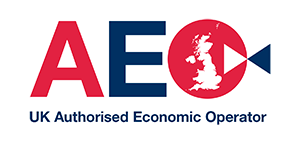
BBTP closure and transition update
...Defra’s Biosecurity, Borders & Trade Programme (BBTP) officially concluded on 31 March.
While the programme itself has closed, work remains in managing border operations and implementing the final elements of the Border Target Operating Model (BTOM). Live running of border operations has now transitioned to APHA and the residual border projects will continue in Defra, alongside ongoing enhancements to digital services supporting border functions. The Borders operational team will continue to oversee vital functions including Sevington operations, issue resolution, Port Health Authority (PHA) engagement, and trader communications such as this newsletter.
The contact information below remains unchanged and should continue to be used.
Tachograph break guidance for drivers
It has come to our attention that some drivers are taking tachograph breaks upon arriving at the Sevington Border Control Post (BCP).
We kindly remind you that the Sevington BCP is not a designated service area. For the safety and well-being of drivers, please ensure breaks are taken in appropriate environments at nearby designated service areas. The BCP operates 24/7 with limited parking, so your cooperation is essential in maintaining smooth operations.
Please direct your drivers to the following nearby service areas:
Ashford International Truck Stop
Ashford Truck Stop
Unit 14 Arrowhead Road, Ashford
Phone: +44(0)1233 502919
Distance from Sevington site: 1.5 mile
ChannelPorts Ltd. Truck Stop
Folkestone Services,
Junction 11, M20, Hythe
Phone:+44 (0)1304 203105
Distance from Sevington site: 7.4 miles
Roadchef Motorways Ltd
Junction 8, M20, Hollingbourne
Maidstone, Kent
ME17 1SS
Distance from Sevington site: 17.3 miles
We will be working closely with the DVSA to reduce the number of breaks taken on-site, and they will be notified of any persistent offenders.
Foot and Mouth disease – reminder of actions to take to ease processing delays for German, Hungarian, Slovakian and Austrian goods impacted by the import restrictions
We understand that enhanced controls for German, Hungarian, Slovakian and Austrian FMD-susceptible meat products, milk and milk products may present a challenge for traders, and we appreciate your cooperation and support for keeping Great Britain FMD-free.
The following are actions that you and/or your agent can take to help mitigate some of the most common causes of processing delays that we’re currently seeing at the border. You can also watch a recording of our recent webinar. Please pass to your agent for information.
1. Multiple CHEDs under the same MRN.
Where a load or container consists of a mixed load or groupage, there is an increased risk that the SPS hold on the customs declaration will not be lifted if one or more of the consignments in the load requires an inspection.
Example: an agent or importer has correctly submitted 3 separate CHED import notifications in IPAFFS for 3 consignments in a vehicle’s load. All 3 are correctly recorded on the customs declaration in CDS.
Checking on IPAFFS, two of the consignments have been cleared as valid but one is still undergoing documentary checks and has not yet been cleared. An SPS hold is showing on the customs declaration in CDS.
Once all 3 CHEDS are cleared as valid by the Port Health Authority, the SPS hold is removed from the customs declaration and HMRC/Border Force can release the load if no further customs checks are required.
Action to take: Traders and their agents are asked to check the status of their consignments via IPAFFS and CDS and where necessary discuss options to minimise delays with the Port Health Authority/Local Authority (PHA/LA) at the point of entry. These may include devanning and separating the consignments. This is likely to require the resubmission of the customs declaration for the load.
2. Removal of consignments for inspections.
If your supplier off-loads a particular consignment before it reaches Great Britain, and you or your agent cancels the accompanying CHED import notification in IPAFFS, it is important that you or your agent also amends the pre-lodged customs declaration in CDS to remove the relevant commodity codes and CHED reference number for the consignment. This also applies if you ask the PHA to cancel the CHED on your behalf.
Action to take: You or your agent should amend the customs declaration to remove any cancelled CHEDs. If the customs declaration is not amended, the SPS hold will persist because CDS is not able to access the inspection decision for the cancelled CHED.
3. Consignment remains under an SPS hold in CDS
Where a consignment is still under an SPS hold on CDS despite all SPS checks being complete and all CHEDs showing as valid on IPAFFS, this may be due to inconsistencies in data entry between the CHED import notification and the customs declaration.
Action to take: Traders and agents should check both submissions and amend as necessary. The most common errors include:
- the CHED reference number being incorrectly entered into CDS
- commodity codes not aligning
- non-English characters/text copied and pasted into CHED fields on IPAFFS.
- the final destination is not a recognised GB address / country code is not given as GB.
If you or your agent require further information on any of these actions, please contact the PHA at your consignments’ point of entry into GB.
Useful contacts
Imports of animal products: for urgent questions about imports of animal products, including germinal products, contact the Port Health Authority or Local Authority at the Border Control Post (BCP) for the goods’ point of entry. Find the BCP and the PHA/LA contact information on this map or list.
Imports of live animals: for urgent questions about imports of live animals, contact APHA.
Imports of plants and plant products: for urgent questions regarding imports into England and Wales, contact the Animal and Plant Health Agency (APHA), by email, in the first instance: phsi-importers@apha.gov.uk
Alternatively, you can contact them by telephone: +44 (0) 3000 200 301
If you need technical help with IPAFFS, please call the Animal and Plant Health Agency (APHA) helpline on 0330 041 6999 or email APHAServiceDesk@apha.gov.uk (not 24 hours)








